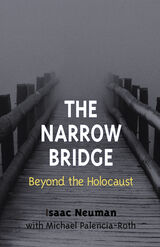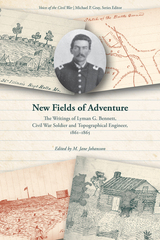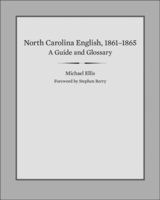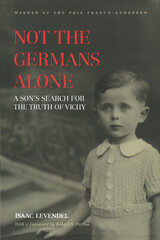6 start with N start with N

As a boy studying Torah, Isaac Neuman learned to seek the spiritual lessons hidden in everyday life. Likewise, in this narrative of occupation and holocaust, he uncovers a core of human decency and spiritual strength that inhumanity, starvation, and even death failed to extinguish.
Unlike many Holocaust memoirs that focus on physical suffering and endurance, The Narrow Bridge follows a spiritual journey. Neuman describes the world of Polish Jewry before and during the Holocaust, recreating the strong religious and secular personalities of his childhood and early youth in Zdunska Wola, Poland: the outcast butcher, Haskel Traskalawski; the savvy criminal-turned-entrepreneur Nochem Ellia; the trusted Dr. Lemberg, liaison to the German occupation government; and Neuman's beloved teacher, Reb Mendel. Through their stories, Neuman reveals the workings of a community tested to the limits of faith and human dignity.
With his brother Yossel, Neuman was transported to the Poznan area, first to the Yunikowo work camp in May 1941, then on to St. Martin's Cemetery camp, where they removed gold jewelry and fillings from exhumed corpses. A string of concentration camps followed, each more oppressive than the last: Fürstenfelde, Auschwitz, Fünfteichen, Gross Rosen, Mauthausen, Wels, and Ebensee. In the midst of these horrors, the brothers kept their feet on the "narrow bridge" of life by holding to their faith, their memories, and each other. In the end, only Isaac survived.
The Narrow Bridge celebrates symbolic victories of faith over brute force. The execution of Zdunska Wola's Jewish spiritual and intellectual leaders is trumped by an act of breathtaking courage and conviction. A secret Passover Seder is cobbled together from hoarded bits of wax, piecemeal prayers, and matzoh baked in delousing ovens. A dying fellow inmate gives Neuman his warm coat as they both lie freezing on the ground.
Such rituals of faith and acts of kindness, combined with boyhood memories and a sense of spiritual responsibility, sustained Neuman through the Holocaust and helped him to reconstruct his life after the war. His story is a powerful testimony to an unquenchable faith and a spirit tried by fire.

This volume provides the perspective of an individual who was both a topographical engineer—with extensive experience that spanned the country from Arkansas to the Overland Trail—and a common soldier. As a member of the Thirty-Sixth Illinois Infantry, Bennett provided one of the most detailed contemporary accounts of the pivotal Battle of Pea Ridge, March 7–8, 1862. By December 1863, Bennett was promoted to first lieutenant in the newly formed Fourth Arkansas Cavalry (US) and wrote an invaluable first-person account of guerrilla fighting in the Ozark mountains. Readers will delight in Bennett’s witty descriptions of the ankles (and even higher!) of ladies as they gathered their skirts to trek through the mud; his sometimes-cutting words about his fellow hospital patients; and his wry comments on that “exclusively southern institution,” the chigger. New Fields of Adventure will prove useful to scholars of the Ozarks, landscape studies, and the Civil War in the West.

Fleeing the Nazis in the months before World War II, the Korman family scattered from a Polish refugee camp with the hope of reuniting in America. The father sailed to Cuba on the ill-fated St. Louis; the mother left for the United States after sending her two sons on a Kindertransport. One of the sons was Gerd Korman, whose memoir follows his own path—from the family’s deportation from Hamburg, through his time with an Anglican family in rural England, to the family’s reunited life in New York City. His memoir plumbs the depths of twentieth-century history to rescue the remarkable life story of one of its survivors.

The core of the book is an alphabetically arranged glossary of words and expressions characteristic of mid–nineteenth century North Carolina, each containing excerpts from the letters themselves to illustrate meaning and usage. While the majority of the writers were Confederate soldiers and their family members, the collection also includes letters from slaves, former slaves, and African Americans from North Carolina serving in the Union Army. The soldiers’ letters rarely contain details about battles, except to list the names of relatives or neighbors among the killed or wounded. After a battle, a soldier might simply write, “the Like of ded men an horses I never saw before” or “we hav lost a heep of men and kild a heep of yankeys.” As Joel Howard of Lincoln County wrote home in June 1863, “I have bin in the ware and Saw the ware and heard tell of the ware till I have got tired of it. if I Could get clear of this ware I neve[r] want to Read of A nother.”
Food is perhaps the most common topic, followed by illness. Numerous terms relate to farming, clothing, religion, and the effects of the war itself, as well as entries for expressions that have long since disappeared from American English: in the gants, on the goose, and up the spout.
In addition to the glossary, Ellis offers an extensive overview of North Carolina English of the period, delves into the social background of the letter writers, and provides invaluable guidance to the ways in which Civil War letters should be read. A unique window into a largely neglected corner of our extraordinarily rich and regionally distinct language, this volume will prove an indispensable reference for scholars and students seeking to reconstruct the world of the common Civil War soldier.

On the eve of D-Day, Isaac Levendel's mother left her hiding place on a farm in southern France and never returned. After 40 years of silence and torment, he returned to France in 1990 determined to find out what had happened. This is the story of how, with perseverance, luck, and official help, he gained access to secret wartime documents laying bare the details of French collaboration-and the truth about his mother's fate.

account takes the reader into Red Guard and Red Army units, Moscow factories,
workers' homes, and to the unfamiliar world of feudal Dagestan. Worker-revolutionary
Eduard Dune was seventeen when the Russian revolution began. He joined the Bolshevik
party and fought with the Moscow Red Guard during the October revolution. Notes
of a Red Guard is his candid account of what happened through 1921. This
uncensored account offers a rare glimpse of revolutionary Russia from the perspective
of an educated, skilled worker who became a rank-and-file participant.
READERS
Browse our collection.
PUBLISHERS
See BiblioVault's publisher services.
STUDENT SERVICES
Files for college accessibility offices.
UChicago Accessibility Resources
home | accessibility | search | about | contact us
BiblioVault ® 2001 - 2024
The University of Chicago Press









